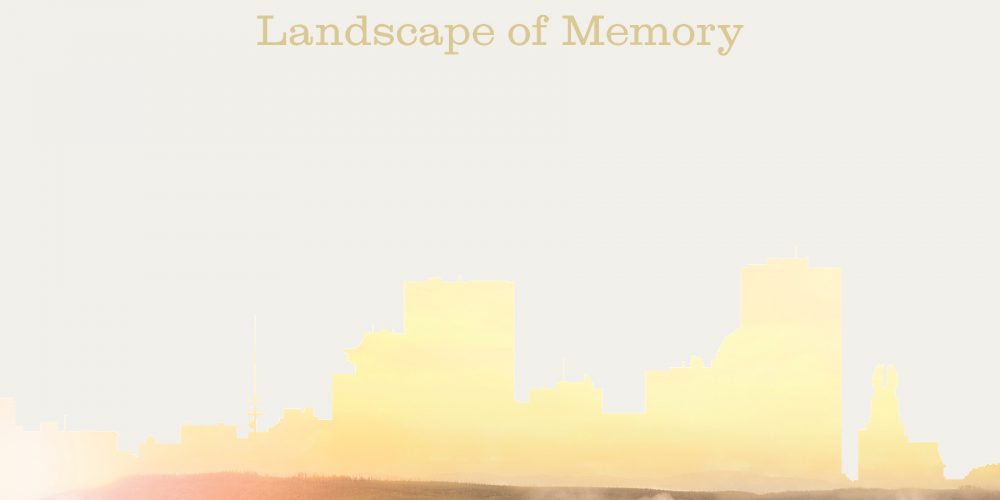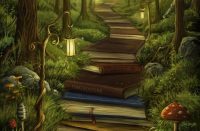There’s an ethereal quality to much nature writing that can feel oppressively twee, miscalibrated to life in the Anthropocene. Annie Dillard may have had a year to wander the Blue Ridge Mountains playing King of the Meadow with grasshoppers, but that was 1974. Haven’t you heard? A Delaware-sized iceberg is going to calve from Antarctica’s Larsen C ice shelf any minute! Sorry, Annie, but I’ll get to your Pulitzer-winning book when the world’s not ending.*
Stepping into the cannon of nature/environmental literature comes ‘Accidental Gravity’ (Oregon State University Press) from poet and Montana State english professor Bernard Quetchenbach. A Rochester, New York native, Quetchenbach has drawn on his adolescence within the Great Lakes basin to craft a reflection on nature in its messy, modern glory. “The Ontario Beach Park pier stirs the smell of decaying algae into the calm, dark opacity of the lake” he writes about a hazy August afternoon. “No shelf of dried scum like a few decades before, just a gently pulsing green soup.” Nothing ethereal here. Rather, bulldozers plow seaweed into heaps, ring-billed gulls peck at invasive zebra mussels; a good sign—no West Nile or avian botulism. “The beach is even open for swimming, the bacteria having dipped to acceptable levels. In short,” he writes, “summer as it is now, in the twenty-first century.”
Quetchenbach’s commitment to presenting the past and presence as it is, so to speak, is found throughout this collection of essays. There’s a refreshing lack of nostalgia for the good old or any other day, which, as a millennial reader, is welcome. “I’m not one to pretend everything’s okay. Or was,” he writes: “The ‘good old days’?—eutrophication, DDT, suburbs spilling into wetlands to the vapid strains of bubble-gum pop.” Not for him is the “great baby-booming mass that still secretly wants it to be the sixties” as they drive grandchildren to swim in Lake Ontario’s overheated and bacteria-ridden waters because the air temperature is soaring and the lake is like a bath. Woodlots near his boyhood home are disappearing and, with them, habitat supporting rare and threatened wildlife. He recalls a black-throated blue warbler he spotted as a boy behind a baseball diamond while searching for a lost ball. If I was the only one who saw it, he asks, could I be the only one who will notice it’s gone? “A world will have passed,” Quetchenbach writes. “I can’t stay here. Here might not even be able to stay here.”
But what if there’s nowhere to go? ‘Gravity’ is in many respects the author’s lifelong search for home. Having left Rochester for school and a string of teaching gigs in Wyoming, Florida, Montana and Indiana (he retains a special disdain for Indiana), Quetchenbach realizes you can’t belong to some places no matter how long you reside there. Whether it’s the Maine woods where people from away are “irrelevant” or Yellowstone National Park, a place he knows well enough to be “something of a native”—even here he concedes he’s simply another tourist.
“The ‘good old days’?—eutrophication, DDT, suburbs spilling into wetlands to the vapid strains of bubble-gum pop.”
His one certainty may be the drudgery of suburbs, populated in the 1950s by city people escaping “mixed race” neighbours and “sharing parks with strangers.” But the land they occupied was, until recently, farm and hinterland, locking suburbanites in a constant struggle against the perceived “bad schools and crime of the city and the feral countryside.” Little wonder he sought refuge afield.
To be sure, ‘Accidental Gravity’ doesn’t entirely abandon mainstays of the modern environmental writing genre, nor is it bereft of beauty. Quetchenbach still talks an awful lot about birding, for instance, perhaps too much for those of us who like birds flitting through a nature essay, rather than forming its core. Habitat destruction and modification are laid at our feet alongside species extinction, the rise of invasives over the second half of the twentieth century and (naturally) climate change. These aren’t parallel tracks, and Quetchenbach spends time with one species in particular, caught at the intersection of these themes.
“Canadas,” as he calls them—that is, the Canada goose—have become a year-round example of how our efforts to remake the landscape in our image have dramatic and cascading effects among our animal neighbours. Wildlife in urban and suburban areas helps root us to the Earth, though these positive associations quickly turn unnerving when animals that were once seasonal become permanent additions. “Resident geese remind us of newer, deeper, threats to the insular quality of contemporary American life,” he writes, “undermining our sense of the orderliness of nature” and reminding us that geese have stayed only because we made it impossible for them to leave.
Rochester may not be a ‘home’ of bricks and shingles, nor is Quetchenbach writing a Wendell Berry-esque celebration of a timeless connection to singular plots of land. If nowhere is home than anywhere can be. Younger readers, those contemplating cross-country moves for school or work and daunted by the reality of being born too late to afford real estate will find something imminently relatable about ‘Accidental Gravity’. It’s lyrical #vanlife.
And yet there’s a debt Quetchenbach still owes to his hometown (such as it is). For a man whose life and travels were profoundly shaped by mountains and sea, the dwindling city on Lake Ontario’s southern shore may have offered him something else, something equally valuable for an environmental thinker not rooted in place (or the past). It offered snapshots of sea lamprey and pike, he writes, “lives transpiring where no human could be more than a fleeting guest.” But more than that. “The lake gave me a horizon, and a vast implied world beyond. I don’t think I regret a single minute I’ve spent along those shores.”
* All apologies to Annie Dillard
Reviewer Information
Andrew Reeves is the Editor-in-Chief of Alternatives Journal. Overrun, his book about Asian carp in North America, will be published in Spring 2019 by ECW Press. His work has also appeared in the Globe & Mail, Spacing and Corporate Knights. Follow him on Twitter.













